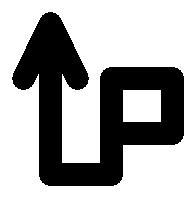Can you
remember a time when you heard someone speak with such precision, force and
resonance that you have never forgotten their message? Rudyard Kipling once said, “Words are the most
powerful drug used by mankind.” I
remember hearing Mark Victor Hansen (co-author
of the "Chicken Soup for the Soul" series) speak at an American
Board of Hypnotherapy convention in the early 1990's. I walked out of the room with about 400 other
people, feeling like I was floating on a cloud several feet above the
ground. What was it about him, his
words, his delivery, or his message that so touched me? Thinking back, I get a feeling that tells me
his message was much more powerful than the words he spoke.
How are you
affected by the way in which you communicate with your own unconscious mind? Do you always
produce the result you want in your behaviors, your health, your performance,
and your choices? It is said that words
are only 7% of our communication, with voice tonality being 38%, and body
language making up the remaining 55%. If
the actual words you say are the least
important element of your message, how can you be certain that you are
conveying the intended message? It is my
belief and experience that the science of NLP (Neuro Linguistic Programming)
holds the key to effective communication with self and others.
The
meaning of the communication is in the response that you get! This is one of the
main teaching principles of NLP. In “Frogs into Princes”, Richard Bandler
and John Grinder (the originators of NLP) point out that you really only
require three things to be an exquisite communicator:
1. Know your desired outcome
2. Be flexible in your behavior
3. Have the sensory acuity to notice when you get the desired
response
Most
people have an idea of the outcome they want in any communication, whether it’s
a sales presentation, a negotiation with a spouse, a job interview, or an
internal dialogue for weight-loss. Where
they are lacking is in their flexibility to be able to generate enough
different behaviors to elicit a variety of responses, or they have inadequate
sensory acuity skills to recognize the meaning of the response.
The map
is not the territory! The words, images and ideas that we use to
describe objects and experiences in life aren’t the actual objects or
experiences. They are our personal
representation of those things, and vary from person to person based on how we
communicate with our self. This is sometimes
where communication breaks down, because we assume
that everyone perceives the world as we do.
You can
change your history! Even your very own past isn’t accurate in
your memories. It’s based on the state
you were in at the time the event happened and changes with each episode of
recall, colored by the state you are in every time you recall the memory. With NLP you can learn to change your state on purpose and use various techniques to
recall the event in that state, thereby changing your experience and emotions
regarding the event. Imagine a memory
from your past that has always caused you anger, or fear, or any other negative
emotion being transformed into a neutral memory that allows you to remain
positive, powerful, and in control.
Sound
fantastic? It is not only fantastic, it
is transformational. NLP offers powerful tools for personal change
and growth, as well as therapeutic tools for anyone doing counseling or
coaching. It teaches how to model
excellence, control emotions and states, and overcome resistance and blocks to
success. I have found NLP to be an
indispensable tool in my hypnotherapy practice and it has propelled my personal
and financial growth into new dimensions.
Patricia
V. Scott, Ph.D., is President of Unlimited Possibilities Hypnosis Incorporated and UP
Hypnosis Institute in Florida
Contact:
727-943-5003;
E-mail: UPHypnosis@outlook.com. Website: www.UPHypnosis.com
© 2005 UPHI

